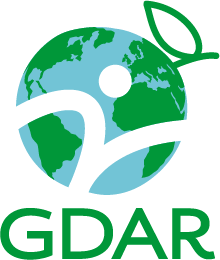Professor Vide Adedayo represented GDAR at the 2025 Annual Meeting of the Canadian Association of Geography (CAG), hosted by Carleton University in Ottawa, Canada between 20th to 23rd May, 2025. … Continue reading Tackling Syndemic in Diet and Activity Behaviour in Climate Change Hazards Policies in Lagos, Nigeria
Take care of the environment, take care of the people, take care of the future
2025 International Society of Behavioural Nutrition and Physical Activity (ISBNPA) conference In June 2025, the GDAR team joined the International Society for Behavioral Nutrition and Physical Activity (ISBNPA) conference in … Continue reading Take care of the environment, take care of the people, take care of the future
Climate events, health, and community resilience in the Global South: A multi-site participatory study and the Belo Horizonte, Brazil case
As climate change accelerates, extreme weather events are becoming more frequent and severe around the world. In Belo Horizonte, Brazil, seasonal rains often lead to devastating floods, landslides, and inundations—events … Continue reading Climate events, health, and community resilience in the Global South: A multi-site participatory study and the Belo Horizonte, Brazil case
The challenges of diet and activity
International Conference on Diet and Activity Methods Between April 27 and 30, Gospel Ikpotokin-Ab, GDAR and University of Cambridge MPhil student, attended the International Conference on Diet and Activity Methods … Continue reading The challenges of diet and activity
Urban Health in Africa
Several GDAR researchers have contributed to a new book on Urban Health in Africa, published by Johns Hopkins University Press. Editors Elaine O. Nsoesie and Blessing U. Mberu bring together … Continue reading Urban Health in Africa
GDAR IS …
The Global Diet and Activity Research (GDAR) network is a transdisciplinary global health research network formed in 2017. But what does that mean? To celebrate our researchers and their work … Continue reading GDAR IS …
The Lancet Countdown’s Inaugural Report on Health and Climate Change for Small Island States
The Lancet Countdown’s Inaugural Report on Health and Climate Change for Small Island States has been published. Led by GDAR’s very own Dr Georgiana Gordon-Strachan, Director of the Tropical Metabolism … Continue reading The Lancet Countdown’s Inaugural Report on Health and Climate Change for Small Island States
Winner of the Cambridge Award for Research Impact and Engagement
Congratulations to our GDAR network member, Dr Gabriel Okello, for winning the Cambridge Award for Research Impact and Engagement in the ECR category! These awards, formerly the Vice-Chancellor's Award, are … Continue reading Winner of the Cambridge Award for Research Impact and Engagement
KEMRI GDAR’s first steps for 2025
The KEMRI GDAR team held their first meeting of the year to plan for key outputs, stakeholder consultations, and student dissertations. Three of the team members, including Charles Lwanga, Gladys … Continue reading KEMRI GDAR’s first steps for 2025
GDAR Annual Network Meeting 2024: Day four – Future-casting
In November we convened our Annual Network Meeting in Johannesburg, hosted by the SAMRC/Wits Centre for Health Economics and Decision Science (PRICELESS SA) at the University of the Witwatersrand. This … Continue reading GDAR Annual Network Meeting 2024: Day four – Future-casting
